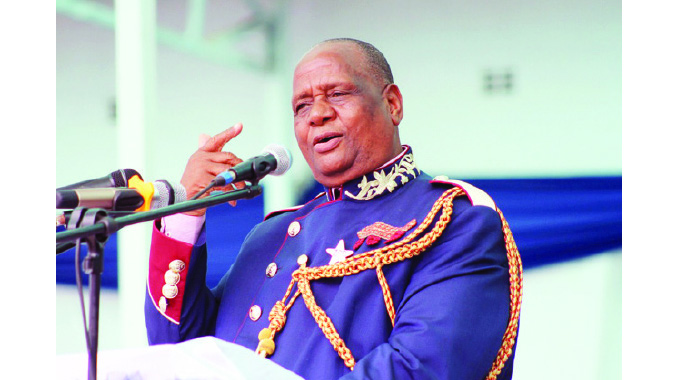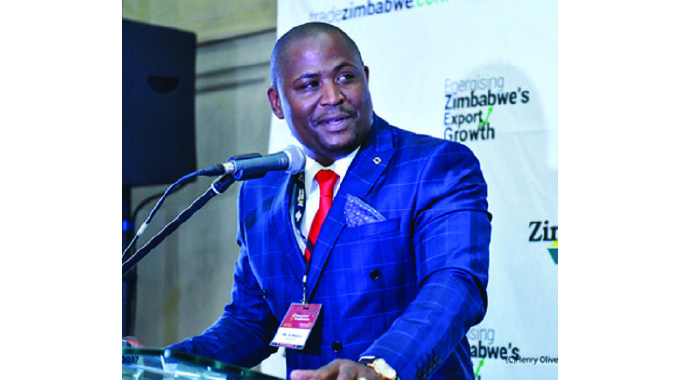‘Let’s unite against our common enemy, rebuild Zim’

The Zimbabwe Indigenous Interdenominational Council of Churches (ZIICC) has of late been at the forefront of pushing for the socio-economic upliftment of indigenous people, the majority of whom live in rural areas. ZIICC has since expanded and now incorporates ZIIWE (Zimbabwe Indigenous Interdenominational Council of Churches-Women Empowerment) as it strives to make sure no one is left behind in the quest for inclusive growth. ZIICC has also been vocal on the need for the removal of the hideous and heinous sanctions imposed by the West that remain an albatross stymieing the quest to speedily engender socio-economic development. ZIICC patron and founder His Grace Bishop Reverend Nehemiah Mutendi (NM), who leads ZCC Mutendi, one of the biggest indigenous churches in Zimbabwe, speaks to The Herald’s Masvingo Bureau Chief George Maponga (GM) on ZIICC, sanctions and other issues.
***
GM: What is ZIICC and what was the motivation behind its formation?
NM: ZIICC is Zimbabwe Indigenous Inter-denominational Council of Churches. It was formed to represent indigenous churches most of which were founded during the colonial era. Like the leaders of indigenous nationalist political parties, most of the leaders of these churches were persecuted by the colonial regime, which did not want them to worship openly or to start their own schools. The motivation for the formation of the council was that there was no body who spoke on behalf of the indigenous churches whose views were not entirely the same as those of the western-oriented so-called mainline churches which tended to speak on behalf of all the churches.
GM: How does ZIICC’s objectives dovetail with the Vision 2030 agenda enunciated by President Mnangagwa’s Government?
NM: ZIICC is for the upliftment of local people and the development of rural areas where most of its members are rooted. In our view, Vision 2030 is all about raising the standard of living of indigenous people.
GM: What is the role of indigenous churches in aiding the country’s development agenda?
NM: Indigenous churches have a critical role to play in the development of the country because they are rooted in the rural areas though they have spread quite considerably in the urban areas. Because of the considerable following that they have among the local people, they are critical for any development because they command considerable numbers as well as the respect of local people. They can, therefore, foster faster development and acceptance of government programmes if the government works with, and through, them.
GM: As ZIICC patron and founder, are you happy with the current role being played by indigenous churches in the quest to engender socio-economic development 41 years after independence?
NM: I am quite happy with the role that indigenous churches are playing, but most of the churches are currently hampered by lack of resources like land for agriculture and to build churches. Indigenous churches want to engage in large-scale commercial farming and other economic activities such as mining. Mainline churches had a head-start on us because they were provided resources during the colonial period, so we are playing catch-up. We want to complement that.
GM: How did the advent of the new dispensation and it’s open door policy create leeway for indigenous churches to have a more pronounced role in the drive to uplift lives of the majority of Zimbabweans?
NM: It is too early to talk about the impact of the new dispensation on indigenous churches because we are still trying to find each other. The major development though is that the new dispensation recognises our role and has given us an ear. As I said, we still need to be empowered by being provided the resources we need to stand on our own. We need land mostly to embark on large-scale farming and build our own missions.
GM: What is ZIICC’s view on the political climate in the country and is there more that can be done to promote peace and oneness so that Zimbabweans work in unison on the road to prosperity?
NM: The most important thing that ZIICC appreciates is the peace that is prevailing in the country. It is because of that peace that we were able to grow enough food for ourselves. We are building new roads across the country, including the state of the art Beitbridge-Harare Highway. We are building new dams and resuscitating irrigation schemes. We now have enough electricity, enough fuel. It is because of this peace that we have been able to contain Covid-19 and are among the best countries in Africa in fighting this pandemic.
Right now, we are one of the few developing countries that have more vaccines than our people can take because we were able to buy our own vaccines, using our own resources, while some countries are waiting for donors.
We pray, therefore, that this peace prevails so that we can continue to build Zimbabwe on our own, brick by brick, with action not words. With or without sanctions we can rebuild Zimbabwe because “nyika inovakwa nevene vayo”. Indigenous people must therefore be the biggest beneficiaries of any economic development, especially when the country attains an upper-middle income status.
GM: Zimbabwe has been reeling from effects of illegal sanctions imposed on the country for over 21 years, what is ZIICC doing to add impetus to calls for their removal and what new strategies should be employed to accentuate calls for the sanctions to go?
NM: ZIICC is totally against sanctions because they are hurting the ordinary person and not the so-called targeted people. This is one of the areas where Zimbabweans need to forget their political differences and speak with one voice because sanctions hurt everyone the same regardless of their political affiliation. At the same time, it is pointless whining about the sanctions all the time. We must build our country despite these sanctions, but we can only do so as a united people. We cannot go forward when some of people are saying sanctions are good for the country. If they were good for the country, they would never have been imposed in the first place.
GM: Is ZIICC happy with the state of indigenous churches in Zimbabwe when compared to long established missionary churches?
NM: No, not at all. Indigenous churches have no resources. Mainline churches have resources some of which they got during the colonial period. We do not have land that we have title to. We do not have schools, hospitals or even universities. We need to develop all these so that we can play a meaningful role in the development of our country.
GM: What is Bishop Mutendi’s parting message to Zimbabweans as the country embarks on a journey to economic redemption in the face of sanctions and the quest to become an upper middle income society by 2030?
NM: My message is that we must unite so that our country continues to enjoy the peace that is currently prevailing. Let us tolerate one another despite our political differences so that we can build our country. Zimbabwe is a beautiful country, endowed with a lot of natural resources. I have often told my fellow church people that there is no other country I would like to live in besides Zimbabwe. It is the land that God gave us. Let’s use it.
Let’s till the land. Let’s fight for it. Let’s unite against our common enemy. We will always have differences but these should not divide us. If we are united, it will be quite easy to turn our country into the jewel of Africa that it is. We have only ourselves to blame.








Comments